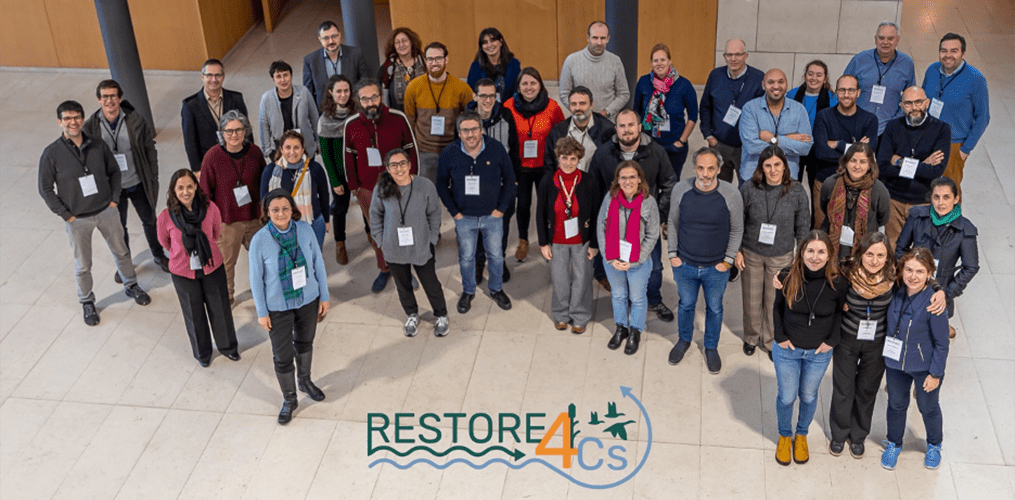
RESTORE4Cs, a freshly started project led by the University of Aveiro, will address management and restoration actions to maintain and promote the mitigation and adaptation capacity of European wetlands to climate change, while focusing on coastal wetlands and providing innovative tools and methodologies for decision making and restoration planning and actions.
What is the potential of wetlands? How can multiple challenges such as climate mitigation and adaptation, biodiversity conservation, disaster risk reduction and other threats to ecosystem services be tackled to foster mutually reinforcing actions and enhance co-benefits from wetland restoration?
All major European Union (EU) policies recognise the key role of wetlands to achieve the EU objectives regarding climate neutrality, biodiversity protection, zero-pollution, flood protection, and circular economy. Therefore, assessing the current extent and state of European wetlands, their current and potential greenhouse gases (GHG) profile and their medium to long-term mitigation capacity through restoration, or other measures, are key priorities of the European Union to tackle climate change. Led by the University of Aveiro, the recently awarded Horizon project RESTORE4Cs (Modelling RESTORation of wEtlands for Carbon pathways, Climate Change mitigation and adaptation, ecosystem services, and biodiversity, Co-benefits) will assess the role of restoration action on wetlands capacity in terms of climate change mitigation and a wide range of ecosystem services using an integrative socio-ecological systems approach.
The kick-off meeting, held in Aveiro from 16 to 19 January, has officially marked the start of the project consortium’s activities, gathering representatives of 15 partners from 9 European countries, including universities, research institutes and infrastructures, small and medium enterprises, intergovernmental organisations and NGOs, bringing together a well-structured and multi-disciplinary team, holding all the essential expertise to be at the forefront of the research/policy interface. The meeting agenda covers all aspects of the project implementation, spanning from administrative issues, overview of the state of the art, coordination, communication and organisation of the work. Case pilot sites have been presented by the related local teams and a first visit in the field has been organised in the area pertaining to Ria de Aveiro.
Focusing on coastal wetlands across Europe, RESTORE4Cs will deliver standardised methodologies and approaches for the prioritisation of restoration, promoting carbon-storage and GHG emissions abatement, while improving the ecological status and the provision of additional ecosystem services, such as flood regulation and coastal erosion protection. More in detail, the project will provide online, user-friendly and integrated tools as unique entry points for wetland practitioners and decision makers regarding the prioritisation of conservation and restoration actions, in relation with their GHG performance as well as impacts on biodiversity and a wide range of ecosystem services while addressing in parallel three spatial scales (local, national, regional/pan-European) combined with the three targeted habitats (wetlands, floodplans and peatlands).